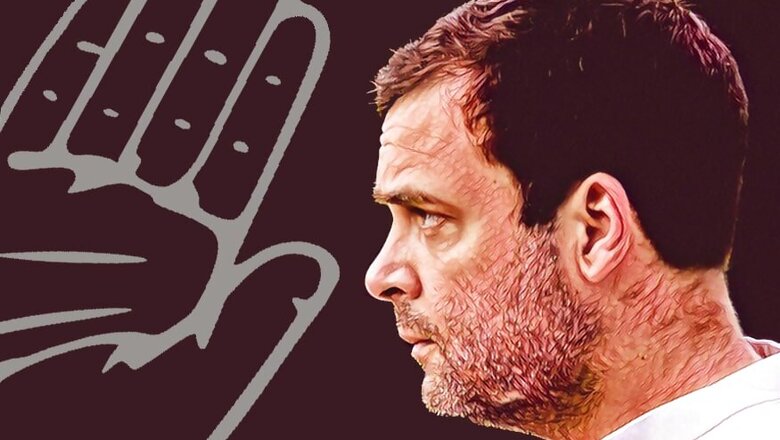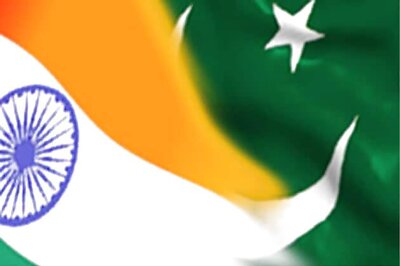
views
New Delhi: Rahul Gandhi will file the nomination for the post of Congress president on Monday amid the din of ‘dynasty’ created by party leader Shehzad Poonawalla. The latter has alleged that the internal elections are rigged, earning praise from PM Narendra Modi in the run-up to Gujarat elections.
The Election Commission (EC) of India lays a lot of emphasis on intra-party democracy. Political parties are asked to conduct transparent and foolproof elections according to their respective constitution.
While the Election Commission — the constitutionally mandated independent body — is in-charge of holding elections to the state and central legislatures, political parties hold their own elections and inform the poll panel of the same.
The most important election in any political party is that of the president. The party constitutions in India are drafted in a way that the president is vested with the power to nominate other office bearers.
The president also holds the authority to sign B-form by dint of which a candidate is allocated the official symbol of the party.
Thus, political parties take great care in conducting their internal election process. Stakes are high and one wrong step can lead to catastrophic consequences.
The selection of the presiding officer, for one, is the critical first step towards a hassle-free election. Loyalty and trust are the two primary virtues sought out in the election officer. Nothing more, nothing less.
As a senior political journalist once remarked in a lighter vein, parties monitor the blood-pressure and temperature of potential election officer for undue and un-necessary fluctuations before nominating him or her to the task.
For the elections to the post of the Congress chief, the election schedule was announced by Mullapally Ramachandran, the party MP from Kerala.
The five-time Lok Sabha MP has stood by the party through thick and thin, beginning his political career as the Youth Congress President of the District Congress Party in Calicut.
Be it the Emergency, PV Narsimha Rao’s tenure or the turf war in Kerala Congress, Ramachandran has remained loyal to the party and the family in the last four decades. Ramachandran has won his spurs through sheer perseverance.
Earlier this month, Lalu Yadav’s Rashtriya Janata Dal also held its elections. The indomitable Mandalite was elected party president for a record 10th term. Though there was no challenge to Lalu’s leadership, the RJD chief was careful in choosing the election officer for the polls.
In the case of RJD, former minister Jagdanand Singh was the chosen one. Singh has passed many a test by fire in proving his loyalty to Lalu, including his decision to oppose and ensure his son’s defeat in 2010 Assembly polls. The son had dared to contest elections on BJP symbol against official RJD nominee.
Similarly, almost a decade ago, a high stakes political drama unfolded in Patna when Nitish Kumar and Sharad Yadav came together to replace George Fernandes as the party president. Comprehensively outnumbered in the national council, George loyalists Anil Hegde, the returning officer for the elections, sought to postpone the process by three months.
Hegde was removed from the post and elections were conducted by one Subhash Chandra Srivastav, a national council member.
Hegde, though, later patched up with the new dispensation to return to the party post.
Ironically, this year, when Sharad Yadav and Nitish Kumar fought a similar battle for control over the party, Hegde as the chief electoral officer of the party stood rock solid behind Nitish Kumar.
In the protracted Samajwadi Party family feud, Akhilesh Yadav was elected president at a party conclave in Agra last month. The constitution was amended to give Akhilesh an extended five-year term.
Ram Gopal Yadav, a close Akhilesh aide, as the chief general secretary of the party, presided over the entire election process.
Nitin Gadkari’s election for a second term as party chief in 2013 went down to the wire. Written endorsements and papers duly signed by state units had been submitted to the election officer and current Social Justice Minister Thawar Chandra Gehlot.
As allegations of a layered investment by a company linked to the then party president emerged, it was decided overnight to give Rajnath Singh another term.
Gahlot and his team burnt the midnight oil and made liberal use of whitener to replace Gadkari’s name with that of Rajnath Singh in the nomination papers and supporting documents.
In politics, especially when it comes to inner party elections, there has always been a premium on trust and loyalty.



















Comments
0 comment